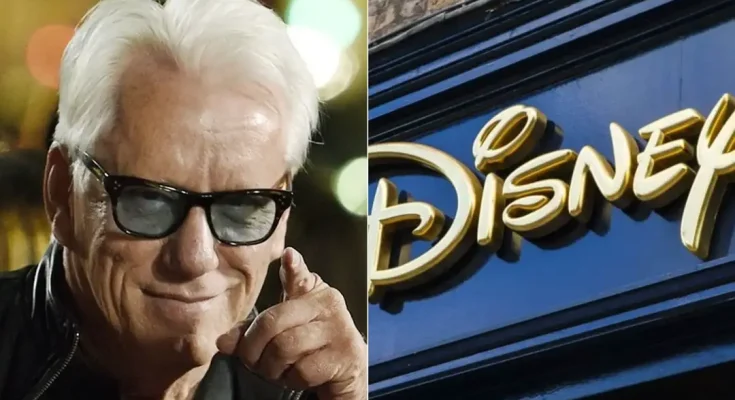James Woods is known for his strong performances and candid style, never shying away from controversy. The veteran actor recently made headlines when he turned down a tempting $250 million offer from Disney for a new movie. His reasoning? He objects to the company’s apparent shift towards a more “woke” image. Here’s a deeper look into why Woods declined this substantial 
offer, his views on the current state of Hollywood, and how this choice aligns with his broader entertainment philosophy.
Disney, globally recognized for its family-friendly films and massive franchises, approached Woods about a role that would have put him at the center of a large-scale production. Despite this enticing opportunity, Woods rejected it due to a fundamental disagreement with the studio’s concept. He stated, “I will never work for ‘woke’ Disney. I won’t let money influence my refusal to uphold my morals.”
Woods has a long history of criticizing Hollywood for embracing progressive social and political commentary. He believes that the entertainment industry has been influenced by the “woke” movement, sometimes to the detriment of storytelling and creative integrity. He maintains that storytelling should reflect authentic human experiences rather than promote political viewpoints.
This refusal aligns with Woods’ outspoken criticism of what he perceives as a culture that prioritizes ideological conformity over creativity. He often discusses how certain themes and narratives feel forced into content, reducing the quality of stories portrayed on screen.
In recent years, Disney has made significant efforts to include a more diverse and inclusive perspective in its programming. This change has included reworking classics to reduce cultural stereotypes, expanding representation in newer stories, and giving marginalized voices a platform. However, this shift hasn’t been without resistance, particularly from traditionalists who believe the company is straying from its roots.
Woods’ rejection can be seen as a part of this resistance. He fears that companies like Disney are increasingly posing a threat to the artistic direction and storytelling he holds dear. Despite his critiques, Disney remains steadfast in its vision, aiming to modernize its storytelling while remaining a leader in global entertainment.
Woods’ decision touches on a broader conversation currently happening in Hollywood. Studio executives are balancing artistic expression with societal expectations as audience preferences evolve and social issues gain prominence. While some artists welcome these changes, others, like Woods, view them as restrictions on their creativity and expression.
In recent years, some projects have been altered or abandoned due to concerns about representation and cultural sensitivity. For Woods and other critics of “woke” culture, these adjustments reveal an industry that’s hesitant to accommodate a full spectrum of voices, fearing controversy and backlash.
By rejecting Disney’s offer, Woods is making a statement about the direction he believes the industry should take. He’s willing to forego a significant payday to stand by his principles, making it clear that he values artistic freedom over financial gain.
For Woods, the core issue isn’t Disney alone but rather a broader culture of conformity that has spread throughout the industry. He feels that this environment stifles creativity and prevents authentic storytelling that challenges the status quo.
Given that he turned down this opportunity, Woods’ future in Hollywood might appear uncertain. However, the actor seems unfazed by potential repercussions. His stance and unwavering dedication to his ideals may alienate him from some mainstream studios, but it could also endear him to independent filmmakers and production houses that share his views on creativity and artistic freedom.
Woods has portrayed a wide range of characters throughout his career, from captivating villains to tragic heroes, and he has no intention of slowing down anytime soon. While this decision places him outside the scope of Disney’s current plans, he remains a compelling talent who could find new opportunities in projects more aligned with his values.
James Woods’ refusal to join Disney’s “woke” project is not just a career decision but a cultural statement. His rejection represents a broader frustration among some artists and audiences who feel that creativity is being stifled by an emphasis on ideological messaging. By remaining true to his principles, Woods has shown that he prioritizes artistic freedom over following the latest trends.
Disney will continue its path toward more inclusive and diverse storytelling, but Woods’ stance serves as a reminder that the entertainment industry remains a battleground of ideas, values, and creative philosophies. Ultimately, this balance between principle and profit will shape the stories we see on our screens and how we connect with the world through them.



